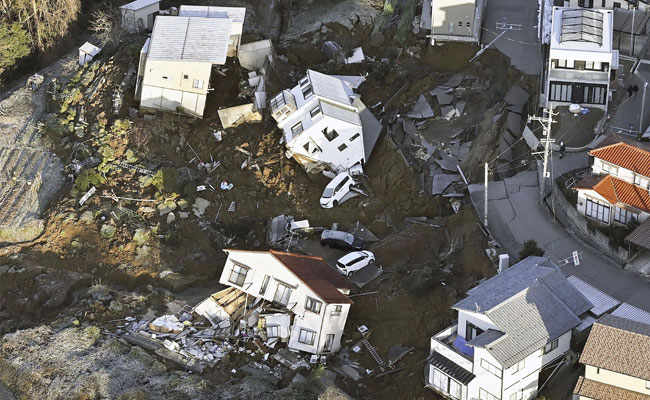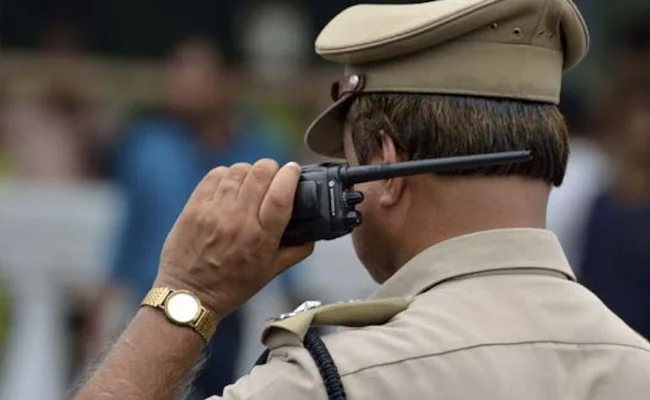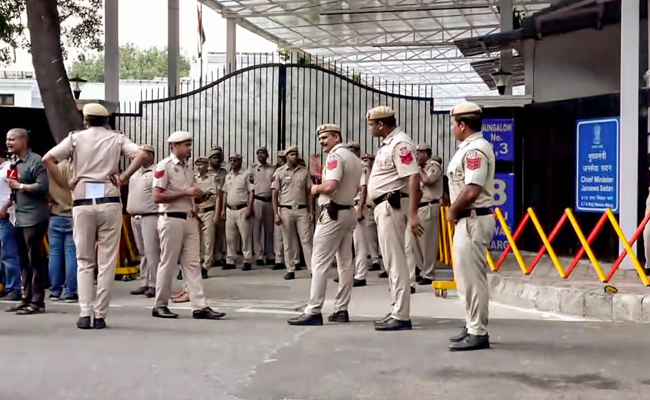Wajima (Japan) (AP/PTI): Rescue teams worked through snow to deliver supplies to isolated hamlets, six days after a powerful earthquake hit western Japan, killing at least 126 people. Heavy snowfall expected in Ishikawa Prefecture later Sunday and through the night added to the urgency.
After Monday's 7.6 magnitude temblor, 222 people were still unaccounted for, and 560 people were injured. Hundreds of aftershocks have followed, rattling Noto Peninsula, where the quakes are centred.
Taiyo Matsushita walked three hours through mud to reach a supermarket in Wajima city to buy food and other supplies for his family. The home where he lives with his wife and four children, and about 20 nearby homes, are among the more than a dozen communities cut off by landslides.
Power was out, and in a matter of hours, they couldn't even use their cell phones, he told Jiji Press.
"We want everyone to know help isn't coming to some places," Matsushita was quoted as saying by Jiji Press. "We feel such an attachment to this community. But when I think about my children, it's hard to imagine we can keep living here."
Late Saturday, a woman in her 90s was rescued from a crumbled home in Suzu, Ishikawa Prefecture, after 124 hours trapped in the rubble. She was welcomed by shouts of encouragement, although the darkness and a long blue sheet of plastic blocked her from view.
Chances for survival greatly diminish after the first 72 hours.
Ishikawa officials say 1,370 homes were completely or partially destroyed. Many of the houses in that western coastal region of the main island are aging and wooden. Cars lay tossed on cracked, bumpy roads. Snow blanketed the debris and highways. Wires dangled from lopsided poles.
The more than 30,000 people who evacuated to schools, auditoriums and community facilities slept on cold floors. They trembled in fear through the aftershocks. They prayed their missing loved ones were safe. Others cried softly for those who had died.
Some people were living out of their cars, and long lines formed at gas stations. Food and water supplies were short. Worries grew about snow and rainfall, which raise the risk of mudslides and further damage, as snow collecting on roofs can flatten barely standing homes.
A fire that raged for hours gutted a major part of Wajima, and a tsunami swept through homes, sucking cars down into muddy waters.
Let the Truth be known. If you read VB and like VB, please be a VB Supporter and Help us deliver the Truth to one and all.
Mangaluru: A police constable attached to the Vitla Police Station has been arrested for allegedly forging documents and manipulating passport verification records to obtain a clearance certificate from the authorities.
Police said on Tuesday that a person identified as Shakti Das, who claimed to be residing within the jurisdiction of the Vitla Police Station, first applied for a passport in February 2025.
During police verification, it was found that the address mentioned in the application did not match official records, following which the application was not recommended.
In June 2025, Shakti Das reportedly submitted a second passport application. Police alleged that Pradeep, a staff member at the Vitla Police Station, processed the reapplication without informing the concerned beat constable, Sabu Mirji, who was responsible for verifying the applicant’s address.
Pradeep allegedly prepared a verification report in the name of the beat constable, forged his signature, secured approval from senior officers, and forwarded the report. He is also accused of destroying verification-related documents to conceal the irregularities.
As per the report, the matter came to light on December 19 during a scrutiny of records. Police said the acts amounted to criminal breach of trust, as a crucial identity document issued by the Central government was fraudulently obtained.
Police further said that Shakti Das claims to hail from West Bengal, and his address is currently being verified.
Based on the findings, Vitla Police have registered a case against Pradeep and passport holder Shakti Das under Sections 336, 337, 316(5), and 238 of the Bharatiya Nyaya Sanhita (BNS), 2023.
Pradeep has been arrested and produced before a court, which remanded him to judicial custody. Further investigation is underway, police said.





